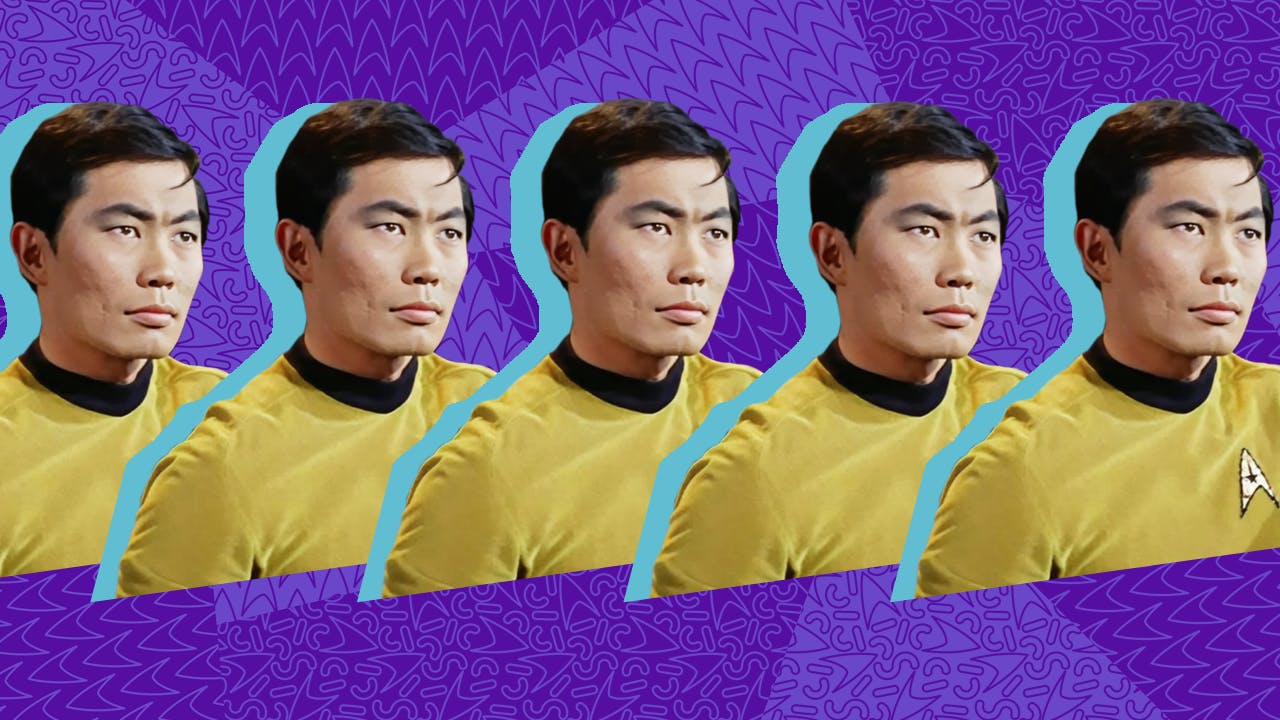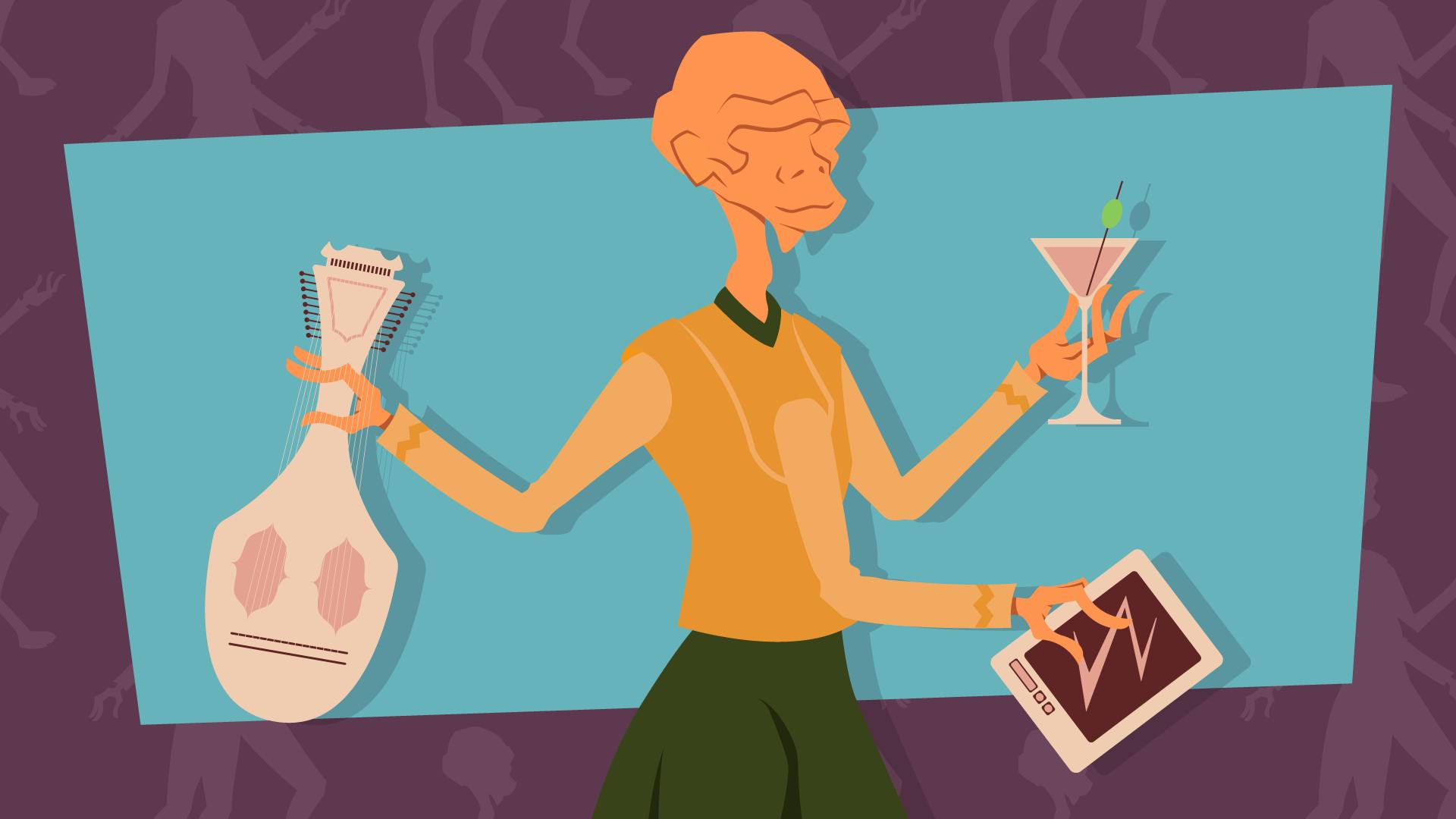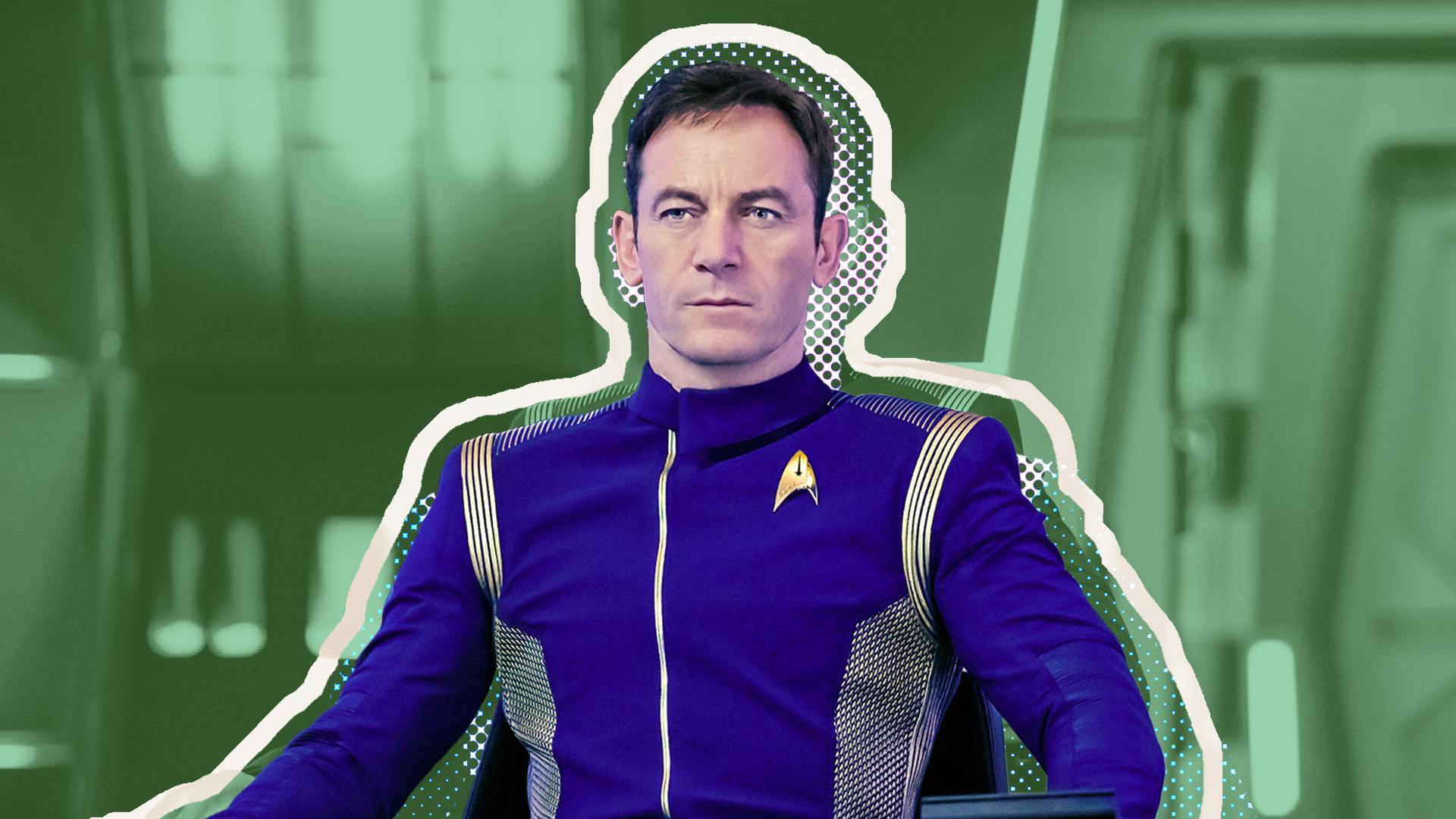Published Aug 30, 2024
The Weight of Optimism and the Birth of the Federation
'Past Tense' was acutely prescient about the hardships of the 21st Century, but it falls short of understanding how we can move beyond them.

StarTrek.com
Above all else, Star Trek dreams.
Of racial unity during the apex of America's Civil Rights Movement. Of international compassion under the threat of the Cold War. Of unconditional acceptance of LGBTQ+ identities through enduring prejudice. It does so through exotic space adventure escapism, infused with a methodical optimism — lofty, vocal, and confrontational.
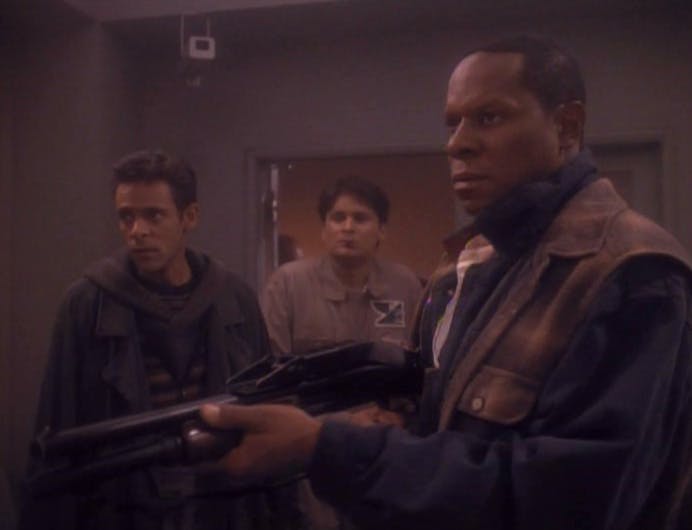
The 2024 Bell Riots were one of the most violent civil disturbances in American history, resulting in the deaths of hundreds of residents of San Francisco Sanctuary District "A."
On the incorrect assumption that Sanctuary staff hostages had been killed, an assault by National Guardsmen resulted in the murder of Gabriel Bell. His dedication to protect the hostages turned Bell into a posthumous symbol of the riots and rallied public opinion against the districts. This sparked an essential period of reflection.
StarTrek.com
Star Trek's utopic humanism is also always posited as a distant future, which can make even the most implausible aspirations feel possible. Trek is the destination, not the journey.
The two-parter, ," doesn’t occupy the future. It plays in the dirt and mud of the 21st Century, specifically San Francisco 2024, as Sisko, Dax, and Bashir are sent 300 years in the past through a transporter accident. Found unconscious without ID or money, Sisko and Bashir are immediately escorted by police to San Francisco Sanctuary District "A."
U.S. cities by this time, are ostensibly housing zones where vulnerable groups — migrants, the unemployed, rough sleepers, and the homeless — could receive government support. In reality, they are a means of keeping them out of sight. There are around 10,000 residents in the 20-block region of District "A," all receiving little effective support and kept in line by armed guards, with people on the outside barely aware of the districts' existence or genuine function. Most damning of all, Sanctuary residents are not permitted to leave — they are jailed in all but name.
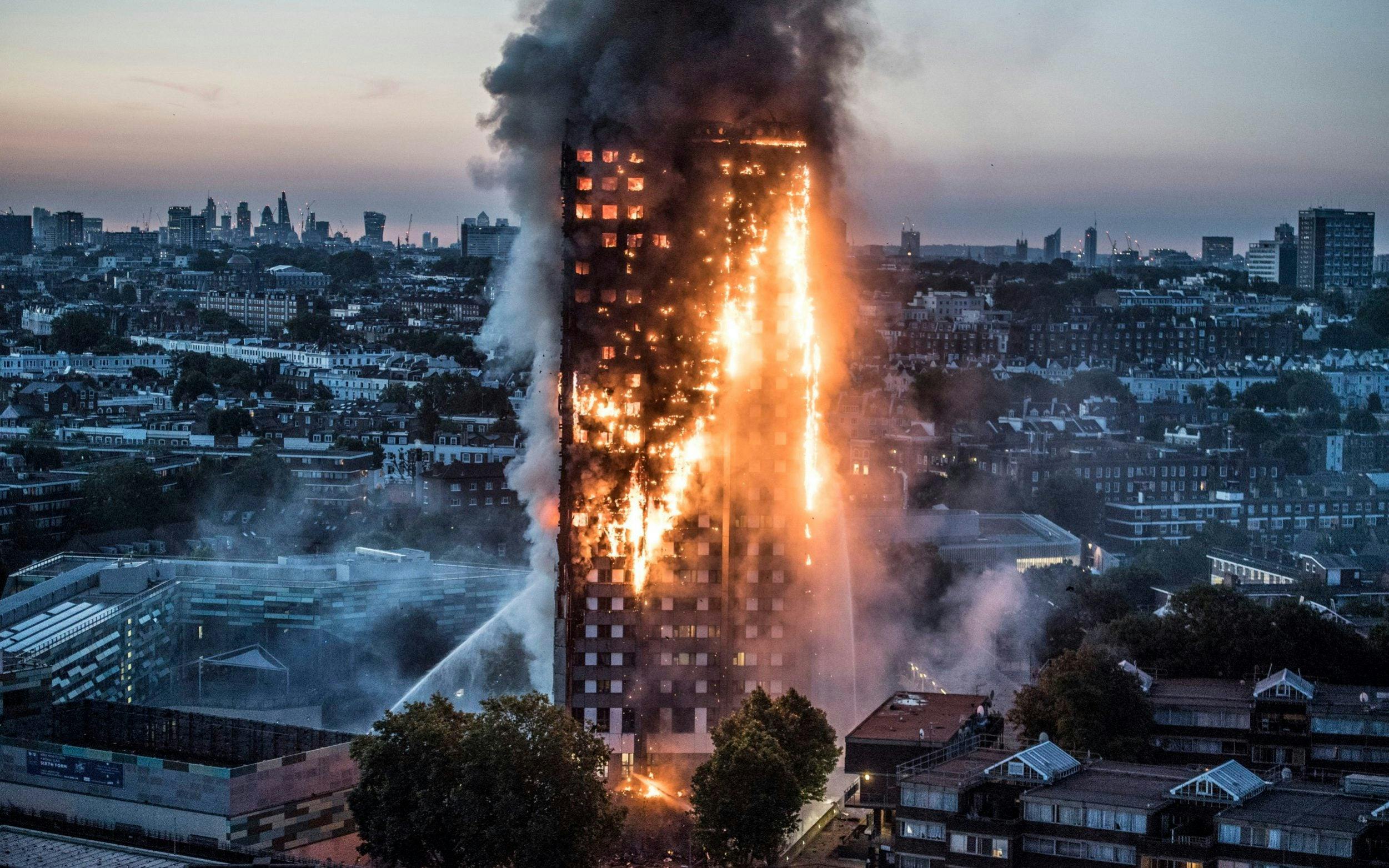
The 2017 Grenfell Tower fire, the worst residential fire in the UK since the Second World War, resulted in the deaths of 72 people, with the building's cladding and exterior insulation the central cause for the dramatic spread of the fire.
Numerous groups condemned the deregulations that allowed Grenfell-style cladding to be installed across the UK, the political failure to bring justice for corporate manslaughter, and the lack of support for the 223 surviving victims of the fire.
Eyevine
First aired in January 1995, "Past Tense" remains a taut exploration of the distance between Star Trek's inherent values and the hurdles of today. The episodes tackle subjects as pressing as homelessness, racial inequality, the displacement of society's most vulnerable, corporate and political apathy, class and gender division, and police violence.
As we barrel closer to 2024, the severity of its prescience is even more undeniable; predicting incarceration-as-benevolence (ICE detention camps and the continued internment of refugee children in the U.S.), the destabilization of Europe, propagandist control of the internet and the essentiality of free platforms, and the ever-presence of privilege and nationalism to justify the most inhumane acts. "Past Tense" predicted it all.
But even in the mire, the episodes have a central benevolent belief — that a singular event — the murder of an incarcerated black man by the police — can be the catalyst for nationwide societal change and recognition of systemic prejudices and inequalities.
The Bell Riots are so inherent to Star Trek’s canon of western history that without this juncture, the Federation would simply never come to be.
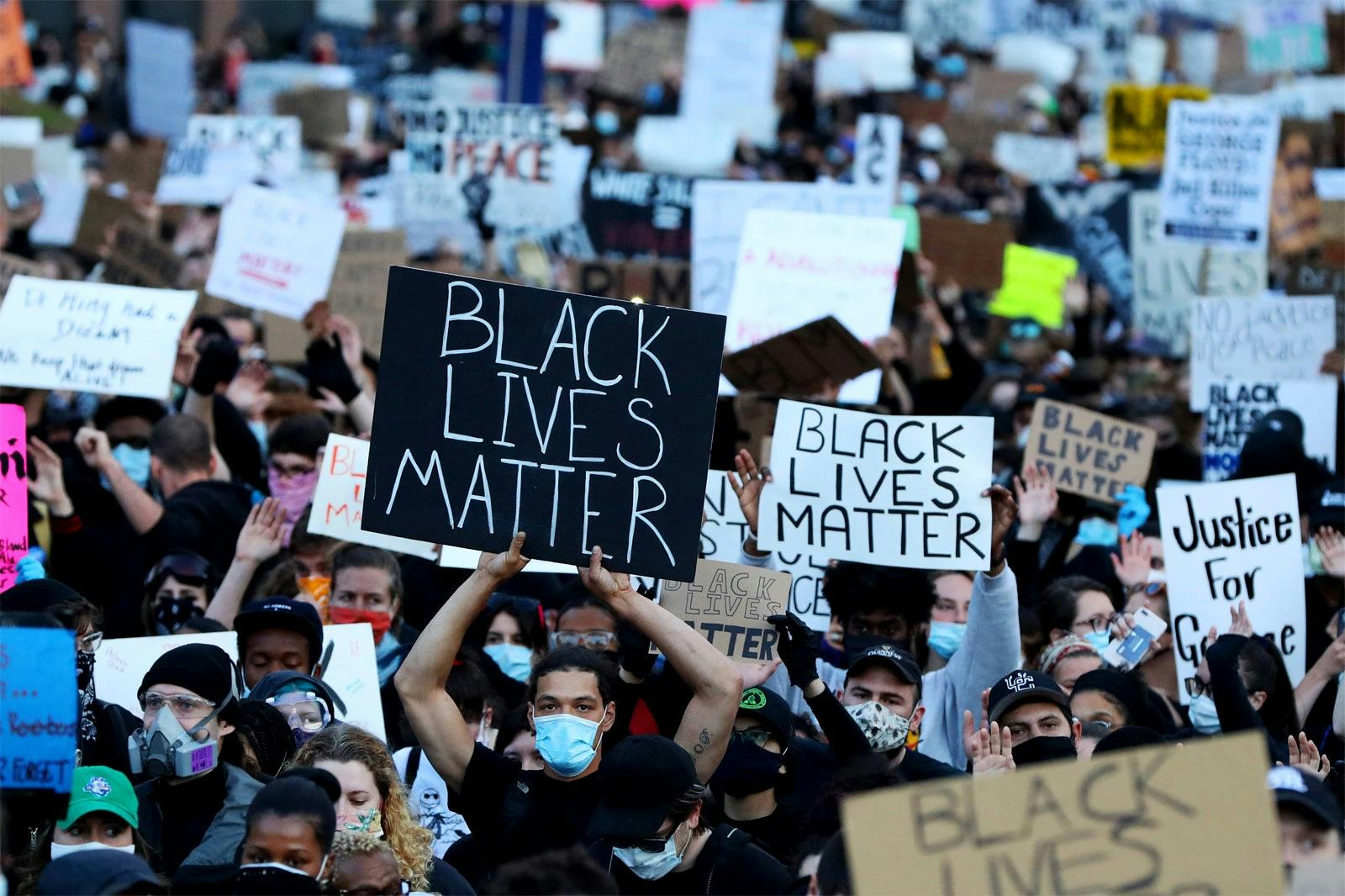
In 2013, the decentralized political movement Black Lives Matter was created in response to the fatal shooting of Trayvon Martin and the acquittal of his killer.
More recently, the 2020 murders of George Floyd, Breonna Taylor, and Rayshard Brooks among others by U.S. police coalesced into global protests and raised awareness of persisting racial inequalities, particularly police violence against Black people.
Maddie Meyer/Getty Images News
That benevolence feels like a much more distant dream, no more accessible than replicators and warp travel. Perhaps because, for all the weight of "Past Tense"'s acidic forecasting, it can't address the extremes of political polarization. Instead, the episodes reach for an easy answer; preaching the strength of the individual. Bell as the sacrificial figurehead, Chris Brynner as the rebel media corporate providing illicit network access, San Francisco as the catalyst for coast-to-coast, and eventually global introspection.
That focus on the individual is comforting — 1995 syndicated TV comforting. But it also absolves us of the effort we need to put into challenging our own perspectives. The figurehead can raise their voice, but one person has never been enough to sustain a movement. That kind of work — hard, open-minded, challenging, and intersectional — has to come from the many.
Political polarization remains an overwhelming force, despite numerous studies asserting that while U.S. citizens broadly agree on moral and policy issues and values, they become entrenched when an issue is associated with a particular side — Democrat, Republican, left or right. The proposed solutions wouldn't feel out-of-place in a Starfleet Academy handbook — intergroup contact, combating negative group meta-perceptions, and superordinate goals that require cooperative groups to achieve.
Instead, we've been barricading ourselves in our own rhetoric and rationalizations, and morality has become barbarously partisan. You are likely to hear claims that George Floyd died because of a pre-existing heart condition, rather than being held under a cop's knee for seven minutes. Or that six Asian women were murdered in Atlanta because one man was having a bad day, rather than it being a targeted racial attack during an exponential increase in anti-Asian hate crimes in the U.S. and UK. How could Star Trek, and its many dreams and 45-minute escapism, wrestle with this kind of division?
George Floyd, Breonna Taylor, the Grenfell fire, the Hong Kong protests, Al Aqsa; any of these could have been our Bell Riots.

British politician Jo Cox was murdered on 16 June 2016, suffering three gunshot wounds and 15 stab wounds in a politically-motivated attack by a reclusive yet outspoken white nationalist.
Cox's death cast a vital light on the incendiary rhetoric used by far-right figureheads, politicians, and the British press and the unchallenged platforming of these views.
Yui Mok/PA Wire
Sisko and Bashir emerge from the siege of the Sanctuary processing centre, sheltered from the early daylight, with the riot now quelled. They have rendezvoused with the Defiant, recruited the surviving Sanctuary staff to tell the true stories of what happened, and discovered a way back to the 24th Century without altering history.
Bashir — the naïve ideologue — asks Sisko, "There's one thing I don't understand; how did they let things get this bad?" He has no answer. Neither does the show.
The optimism of Star Trek has always been an inspiration and a comfort, knowing these values speak not only to myself but millions of people around the world through an incredible, enduring platform. But we don't have the luxury of waiting for the future. We're at the turning point of a faceless, stateless pandemic that has disrupted lives across the entire world. We emerge facing greater inequality, greater extremes of perspectives, and greater efforts to divide us.
Distance is a privilege enjoyed by the future. The space between the 21st and 24th Century is potential. The 26 years between the first broadcast of "Past Tense" and now is condemnatory. I still look to Star Trek for dreams. But now comes the hard work.
